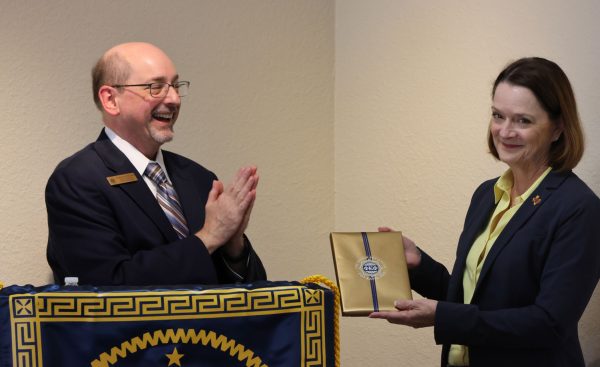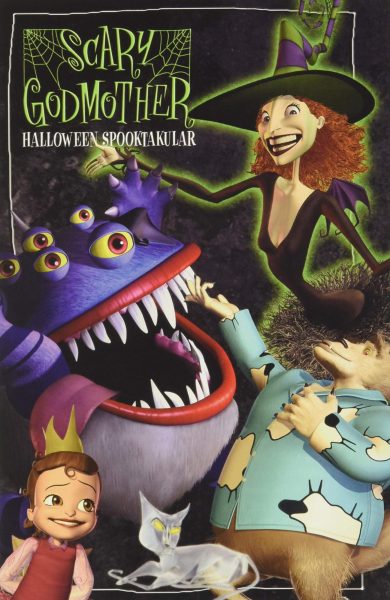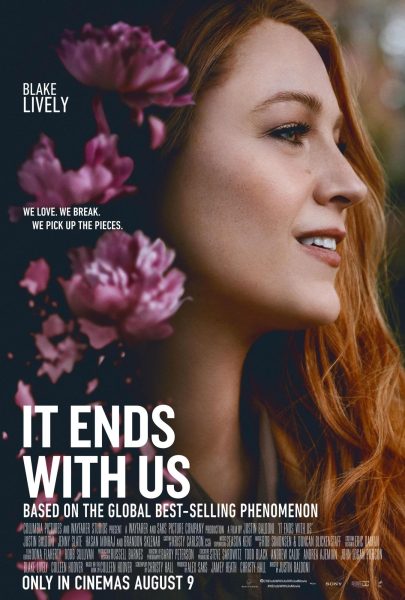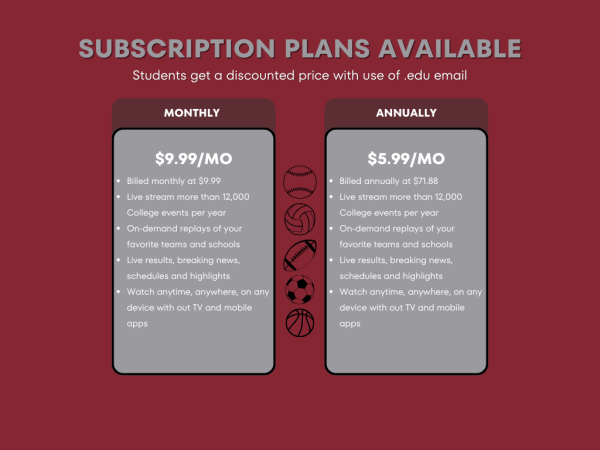Students can help the environment
Last year was the fourth warmest year on record. Explorers have found a hole in the Arctic ice cap the size of Delaware. Climate change is real. It is not fiction, and every student can do something to reduce the impact of climate change, from monitoring their thermostat to recycling.
Jonathan D. Price, chair and Prothro distinguished associate professor of geosciences, said, “We are already seeing consequences for our actions. There is an impact of sea level rise and global warming that we are seeing currently, and we have no plan to actually mitigate this. It’s just going to get more intense at the rate we’re going.”
However, many students said they are doing little for the environment. Reasons include not having enough time or money to help the environment. Helping the environment can be quick and easy, according to Kyle Owen, associate vice president of facilities services. He said conserving energy is a small thing students can do to make a big difference.
“The energy thing [conserving energy] is worth pursuing because we spend $1.3 million a year roughly on utilities, and anything we can do to reduce our electrical consumption or water or gas is a win,” Owen said.
He said keeping the thermostat at reasonable temperatures is an example of something that can go a long way.
“In some of our dorms, students push that air down to 50 degrees and let it run non-stop. Eventually that’s going to freeze up the air conditioner and burn it up. When you get it that cold, you create humidity issues, and you aren’t drying out the air anymore, so you run into mold problems. Not only have you wasted energy, but we’re probably going to have to buy a new compressor for it. Keeping that at a reasonable level would be huge,” Owen said.
Owen also said he believes that simple things that students were probably told as children could have a great impact.
“Don’t leave the water running while you’re brushing your teeth. When you leave the room, turn out the lights. Don’t leave your door wide open with the air conditioning or the heat running when it’s 20 or 100 degrees outside,” Owen said.
Price also has easy suggestions to help the environment that won’t empty students’ wallets.
“Find ways to produce fewer waste products. Everything we consume has a waste to it, right down to food producing CO2 from their cells. I think if you can, as a student, learn what you can do to limit the amount of waste you generate, that’s a step in the right direction. That also is cost effective because perhaps you won’t consume as much in the process,” Price said.
Another way to help the environment, recycling has returned in the form of the large dumpsters. Keith Lamb, vice president of student affairs, said he thinks it would be more convenient to have a better recycling system inside of buildings as well.
“Where we’ve seen success at the Flower Mound campus is using one container where there’s a place for regular trash and a place for recyclables all in the same spot,” Lamb said. “If we could start with some of these in our residence halls and then do more of these around campus over the years, I think that would be more convenient for students to put recycling in these types of bins rather than carrying it out to the big orange ones.”
Part of the reason Lamb said he wants indoor recycling opportunities in the same platform as regular waste is because he hopes students will actually take the time to only put recyclable materials in the recyclable trash cans rather than carelessly tossing their regular trash into them like they are now. He also has other possible reasons for students putting their trash in the wrong bin.
“It’s also about awareness. A lot of students that come to college at Midwestern are maybe from areas that didn’t have recycling programs when they were growing up, and they probably do need to be educated on what you do put in a recycling bin and what you don’t.When I was a kid growing up, all we put in recycling was aluminum, and now there’s so much more that you can put in there, and I don’t think everyone is aware.” Lamb said.
Lamb also said that education is the key to students taking a more active role in helping the environment.
“It’s a wholistic approach. Recycling is just a small part of that, so it’s education on what being a steward of the environment means that students need,” Lamb said.
Price additionally said he thinks that students educating themselves is important.
“Now more than ever it’s important to get ahead of the assessment and to understand what the consequences are. There’s lots to be evaluated at this point. We are still very much in the learning phase of understanding,” Price said. “It’s partially on the university to have a stronger presence in terms of environmental awareness, but I don’t know where that’s best illustrated.”
Price said he thinks a good way for students to become more educated and be more involved in helping the environment is joining the Environmental Student Organization.
“The ESO has been extremely active in thinking about how to restore recycling. They are getting ready for their big annual event which is the Earth Day. It’s a collection of people that come together at the Clark Student Center to talk about the environment. Organizations like the Wild Bird Refuge, the Texas Wildlife Department, and the recycling company talk to our students and let them know what’s going on in our community,” Price said.
Madison Orth, management freshman and member of ESO, said it’s a good way to meet nice people, and it’s the main thing she does to help the environment.
“We are currently focusing on an Earth Day fair and how to raise funds. We go to Hamilton Park twice a semester and walk a mile of the trail to pick up trash. We are also focussing on creating a community garden over by the wellness center if we can get approval,” Orth said.
During their most recent trash pick up at Hamilton park, Orth said the group came upon a pile of garbage that she speculated is someone’s personal belongings that they decided to dump near the trail.
“We tried to clean it, but we could only carry one trash bag each, and there was so much trash that it was ripping holes through the bag. I want to get rid of it. We’ve been talking to the city to see if they know anything about it, or if they can let people know not to dump their belongings in that forested area,” Orth said.
Owen said students’ lack of awareness on what to recycle was part of the reason recycling services were removed from campus for about a month.
“People were throwing everything into their [the company Waste Connections] orange bins, and so they were hauling a lot of trash that basically wasn’t re-sellable to Dallas. It cost them too much. It costs too much to do it, which is why the city wants double the money to supply that service.”
Something that didn’t make the budget cut was certifying new buildings under the Leadership in Energy and Environmental Design.
“There’s a lot of documentation and traceability that has to go on with LEED certification. All of that is good, but it doesn’t happen for free, and there are requirements that the building has to comply with from an energy standpoint that aren’t always as efficient. They cost more up front, and we haven’t had the luxury to be able to spend. We barely get enough as it is. I don’t want to add another fifteen or twenty percent to it to get a stamp. It’s a great idea in principle, but it doesn’t come without a price, and that one is a pretty hefty price,” Owen said.
Although the new buildings aren’t LEED certified, there were upgrades made to make them more energy efficient.
“We put a rainwater collection system over at Legacy. There’s lighting control systems. Double window panes minimize heat losses. There’s lower flow shower heads in the newer dorms. We’ve taken care of a lot of the easy things to fix that give you a real bang for your buck,” Owen said.
However, there were a few investments made that weren’t cheap up front.
“About eight or nine years ago we went through SECO, the state energy conservation office, and got a loan to replace all of the street lights on campus with LEDs. The payback on that is 20 years. That’s a long time, but we did it for a good cause,” Owen said.
What have you been doing lately to help the environment?
Frida Arredonda, Spanish senior| “I don’t use bottled waters anymore. I always use my reusable one. I also don’t use plastic bags. I’ve been trying to use products that aren’t in plastic, but it’s hard to find them, and sometimes they are more expensive. I’m a college student. I don’t have a lot of money to spend on that.”
Nicole Vacio, political science freshman| “Well mostly I don’t really drive. I usually just take the bus. I don’t use much electricity. I spend most of my time outside. I don’t really do much inside because I feel cramped inside. That’s all I can really say. I don’t think I do much.”
Jessica Odom, English senior| “This is shameful, but I don’t think I’ve done anything in particular. The last thing I remember putting an effort into was our proposal for technical writing. I researched carpooling to see if it would work for our university, but unfortunately it never really took off. The only places that it really seemed to work were in more urban areas, so I didn’t feel confident that we could implement a carpooling system here just because it’s so rural, and everyone seems to have a car.”
Mack Foster, marketing senior| “I’ll admit that’s pretty slim. I’ve tried to help clean trash around the dumpster. That’s pretty much all I can say. I do ride the bus, which produces a little bit less CO2. That’s a stretch, I know. I haven’t done much reading on it. I’d like to understand it better. It’s a complicated issue.”
Gabrielle Sanchez, management information systems junior| “I recycle plastics glass, and paper. I reuse scrap paper. I have a refillable bottle. It’s great that the campus provides the fill stations with filtered water. It [helping the environment] can be really inconvenient at times, but once you get in the habit of overcoming that hurdle, it comes to the point where you don’t even think twice about it. If campus lowers their hurdle of the inconvenience factor, it’ll be more easily developed as a habit in people’s lives.”
Mekisha Harrigan, music sophomore|“When I go to the convenient store next door, I bring my own bag instead of taking plastics, and I take the bus. Helping the environment is not the main thing on my mind compared to school.”
Brooke Leiker, music junior|“I used to recycle a lot because my roommate last year was a geology major, so we always recycled everything. I don’t litter. I feel like that should be a basic thing, but you’d be surprised. Tons of people litter. If I see something on the ground, I’ll try to throw it away if I have time.”
Angel Torres, mass communications senior| “I don’t litter. That’s pretty much all I can think of. I really don’t recycle.”
Josenne Dore, biology sophomore| “I usually squash my plastic water bottles up and put them in the recycling bin. The Caribbean Student Organization has a group that collects all of the bottles and carries them to a recycling company.”
Will Schnitker, mechanical engineering freshman| “Picking up trash off of the street every time I see it I guess. That’s about it.”
Tawny De Nio, biology sophomore|“My husband and I only use reusable grocery bags from amazon. We also have mesh bags for our produce. We have two dogs and a cat, so to pick up poop and clean the litter box, we use bio bags. They’re black bags that are safe for the environment. They disintegrate after about a month of being wet, so they don’t clutter up the landfills. There’s probably more that I can’t think of right now. We love saving the environment.”
Allyson Pena, respiratory therapy freshman| “Mainly just recycling and watching where I throw my stuff away at. I use the respected trash cans around campus. I also carpool with people when I have the chance. Usually if I’m out and about and I see trash, I pick it up.”
Emanuel Hernandez, nursing freshman|“Not litter. I don’t recycle. I’m not sure why. I guess I don’t really have time.”
Jomah Qualls, education sophomore|“I recycle sometimes, and I drive a pretty fuel efficient car, a Ford Fusion. At least it’s not a truck.”
Maggie Hinojosa, special education freshman| “Whenever I go grocery shopping, instead of getting plastic bags, I buy the 99 cent reusable bags at TJ Maxx, so that saves a lot of plastic. I don’t like the way the water tastes here, so last semester I bought a ton of water bottles, but now I invested in a Brita water bottle that has the filter, so I’ve just been refilling it and cutting back a lot on plastic by doing that.”
Makinzie Garvin, education freshman| “I pick up litter. That’s probably the most I’ve done. I would say my reason for not doing more is probably time. I’m always super busy.”






